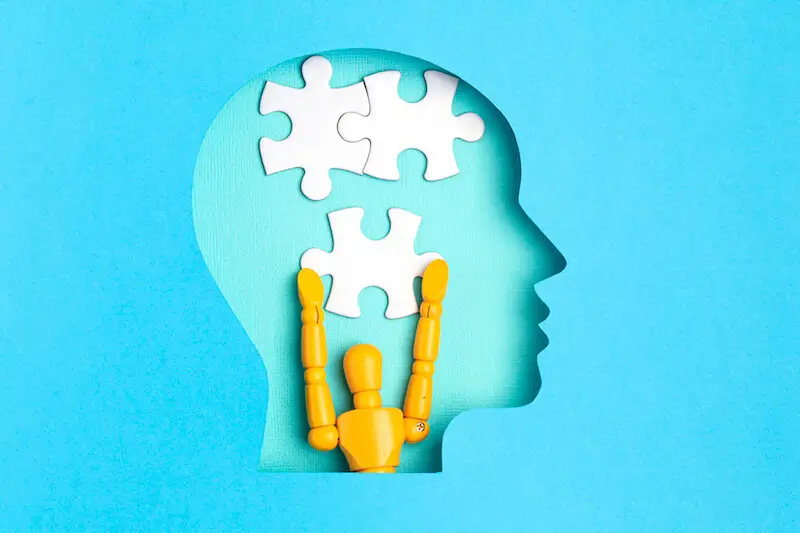
Prospective Memory: Everything You Need to Know
Table of Contents
While each of our brain mechanisms is in charge of one or another mental task, e.g., attention, perception of senses, or reasoning, some of them are critical for our daily performance.
Prospective memory is a mind function that serves a key role in making a person capable of planning, structuring time, and acting on these. For example, remembering your obligation at work, planning your next visit to the doctor, or scheduling your next shopping are the mental intentions that our brain must encode to perform successfully without delays.
Once a person notices that they are beset by trouble when remembering plans and schedules, it may likely mean that you have a decreasing prospective memory. It also might mean that your mind has become more scattered. It can lead to an unfocused mind, disorganization, lack of proper level of control, and acute inattention. There are great and proven memory aids. Keeping up with them and incorporating the most powerful technique can drastically improve cognition and fuel brain power. With an enhanced memory and sharper mind, it will be easier to confront problems of all kinds and make only well-considered choices in your life. When an individual is dynamic-minded, it means greater energy, resilience to stress and a range of factors, and impressive emotional stamina. Such a brain setup allows anyone to avoid frustration and exhaustion, struggle with unwanted aging, and facilely overcome difficulties.
What Is Prospective Memory?
The propensity of human memory to make mistakes is explored and studied in many ways. Some of the issues are minor and can be eliminated by applying memory techniques. And some can be life-threatening and fatally damage human neurons, so they cannot repair themselves, resulting in cognitive deterioration. Different types of memory, e.g., visual, procedural, eidetic, or echoic memory, require diversified approaches to strengthening. Unclosing what prospective memory is: it is paramount to be aware of its importance and to pay attention to potential problems and how to fight them.
So memorization of actions that an individual intends to perform, without any explicit reminder to perform it or special instructions, is known as prospective memory. So if you forget when your best friend’s birthday is or an imperative deadline, it means that this memory mechanism has failed and let you down. Is it an alarming signal? Sometimes, it is a red flag that some impairments affect your thinking and recall. But in most cases, such forgetfulness and lapses are normal. But even if it doesn’t go beyond the norm, there are still some ways to get rid of such inconveniences as forgetting events or inattentive plan implementation.
Prospective Memory In Psychology And Why We Forget
J.R. Rim once said: “Some are born strong, and others are made strong.” Thus, the human brain isn’t hardwired to remember hundreds of people’s names, and it may not have a natural potential to remember a long shopping list. However, still, it can be trained to do so. Obviously, it is very important not to overload the memory with unnecessary and unimportant information. Most of what we did during the day will be forgotten by tomorrow. And that’s totally normal. What is abnormal is forgetting what we planned and our intentions, which means forgetting vital information that affects our daily life. It also can be the reason why we can’t attain what was set out to do.
Let’s take a look at animals with good memory. It is possible to notice that their memory is rather short-term while they still have some specialized type of memory. Thus, some animals with higher IQs will always keep in mind locations rich in food or areas dangerous to them. However, still, animals can’t create any plans. They use their instincts and senses. So it hardly can be compared with human prospective memory because this kind of memory allows us to achieve a higher goal while animals do not have such aspirations. The animals’ mission is to survive, and short-term and specialized memories help them with this, whilst human consciousness is much more complex and needs to be tuned for success.

Example of Prospective Memory In Your Daily Life
Some of the prospective types of memories are naturally acquired. One such example of prospective memory is brushing your teeth twice a day. Another involuntarily occurring action encoded by a prospective mechanism is to lock the door when you leave your home. Taking drugs is also an example of a planned vital act. As you can see, the power of this memory type is closely linked to the quality of life. The stronger it is, the more productive you will be. As soon as it weakens, it is imperative to take measures for its repair. Because weak prospective memory is fraught with troublesome consequences, thus, you can miss an important meeting or even forget to turn off the stove after dinner preparation.
It is also pivotal to distinguish between two different forms of memorization. It may be a time-based intention. For example, a good example of prospective memory tied to your schedule is when your workday starts or when it is the time for your favorite TV series. Event-related memories depend on your surroundings: the time doesn’t matter, only your action, for example, in response to stimuli or cues. That way, you know that when the phone rings, you have to answer it. Or if you are planning a journey by plane, you must buy a ticket first. It is an event-based intention, whilst the time when the plane leaves is time-related.
Does Prospective Memory Deteriorate With Age?
The cognitive mechanism is a set of brain functions that pertain to the ability to learn and gain knowledge, collect and organize information, plan future intentions, solve problems, focus, keep and shift attention, understand and use language, accurately perceive the environment and how our senses respond to it and perform mathematical calculations. Any change in how you process the surroundings and encode information may be signs of a disease affecting your brain. Brain activity examination and memory assessment are pegged as critical processes for ensuring your overall well-being since neurodegenerative disorders seriously lower the quality of life. You can suspect some impairments if one is struggling to find the right words or has trouble concentrating, especially when two things are happening simultaneously.
Prospective memory failure is associated with difficulties with planning or setting priorities. Loss of working capacity is another side effect. Since this type of memory refers to the fulfillment of intentions in the future, its poor and cracked encoding interferes with the ability to perform a wide range of routine activities, which undermines people’s independence. Developing strategies that improve time-related and event-based functioning can help people with symptoms of brain aging to strengthen their ability to encode and retrieve intentions and thereby maintain their independence.
In order to understand whether someone has got bogged down with memory issues and learn key triggers, apart from medical brain examination and neurologist consultation, it is possible to try to pass a variety of tests that allow assessing the memory capacity. If you are wondering why it is hard for you to retrieve images and recall visual scenes in detail, take an eidetic memory test. Thus, an inability to recall images vividly can be a sign of aphantasia, also known, as a blind mind’s eye. It is not a disorder and does not require treatment. It is a rare condition that can have an effect on the way you visualize and imagine things. However, being incapable of taking mental snapshots and keeping some visual scenes in your mind can be the reason why grasping complex concepts is a hard-to-reach objective. Building a mind palace and applying other visualization aids also might be the mental tasks that get out of hand.
There is also a test for measuring cognitive activities of different types. Remember that taking care of brain health envisages not only medical or vitamin support but also allocating time for pen-and-paper or digital memory tests. And since some insignificant memory loss or casual inattention due to tiredness is okay over time, some serious issues can be overlooked. It is important to be concerned about potential impairments and their consequences, especially when it comes to encoding memory that is responsible for planning, scheduling, and implementing intentions.

Can Prospective Memory Be Improved?
Lacking brain exercise in your daily life can lead to not-so-obvious side effects. It is a kind of mental stagnation when there is no visible progress. Apart from poor memory and low-grade thinking pattern, lack of enthusiasm and depression may occur. Without brain training, your physical and emotional well-being will worsen. Having a flexible mind and a trained one will also reflect on the physical body. At certain times, if your brain activity comes to a standstill, you will lose motivation. You will not be able to reach a sense of satisfaction or live your life as you wish. And moreover, you will be definitely frozen in your hesitations and fears. However, as soon as you feel the freshness of thought, the strength of your memory and analysis skills, and the ability to plan well, you will remove all the mental barriers and regain self-confidence. And cognitive growth gives space to asserting oneself in society or at work.
So if you feel that you are getting stuck in the same old habit, it is time to try something new, as it also will promote your prospective memory. Being impinged by poor prospective encoding, you can try using various tools and digitalized methods of reminding, for example, a calendar, notifications on a smartphone, notes with reminders on a laptop, etc. But it will be better to have an impact on the root cause with proven memory training exercises. If some signs of disease are detected, it would be a smart to incorporate a tailor-made cognitive rehabilitation strategy into overall therapy.